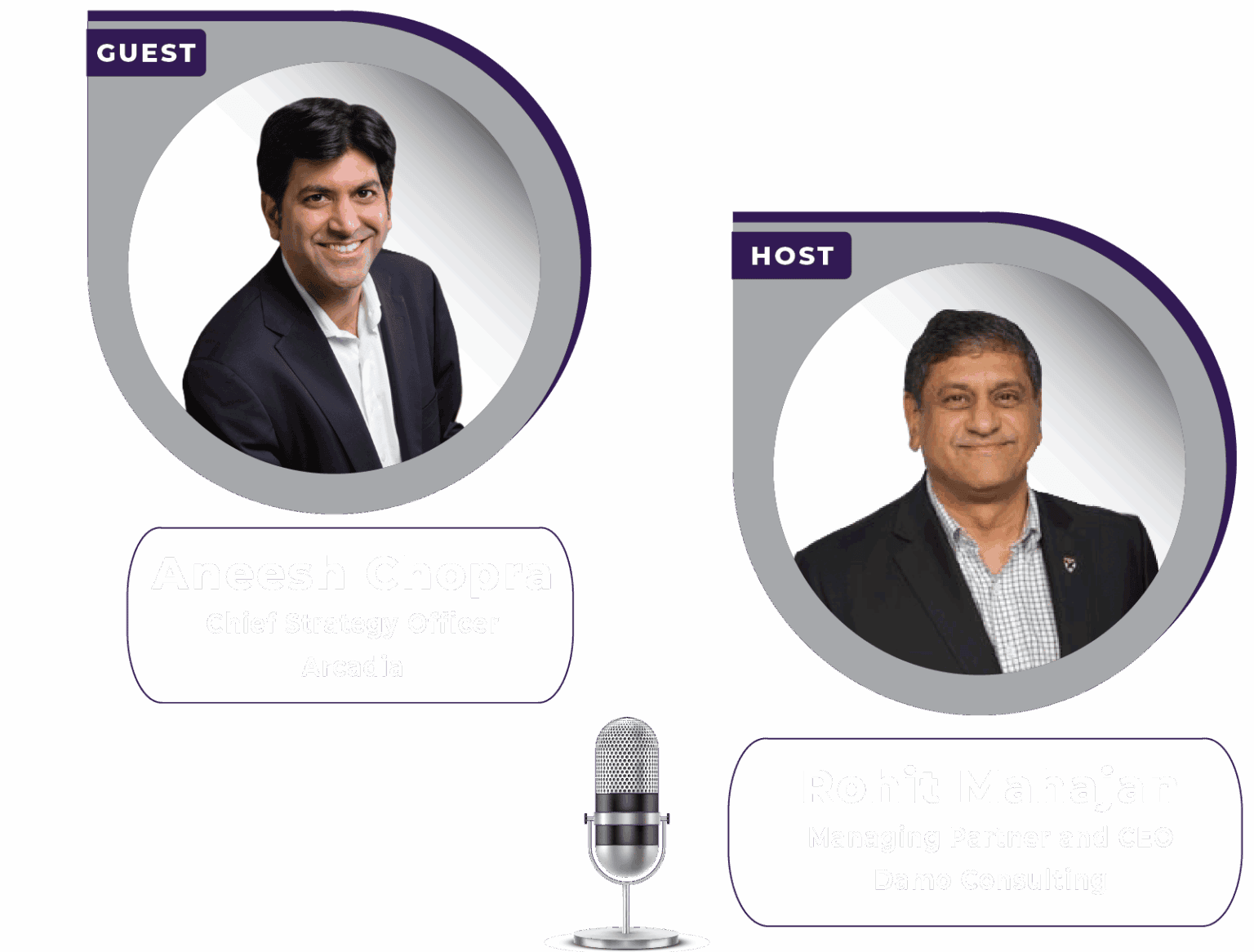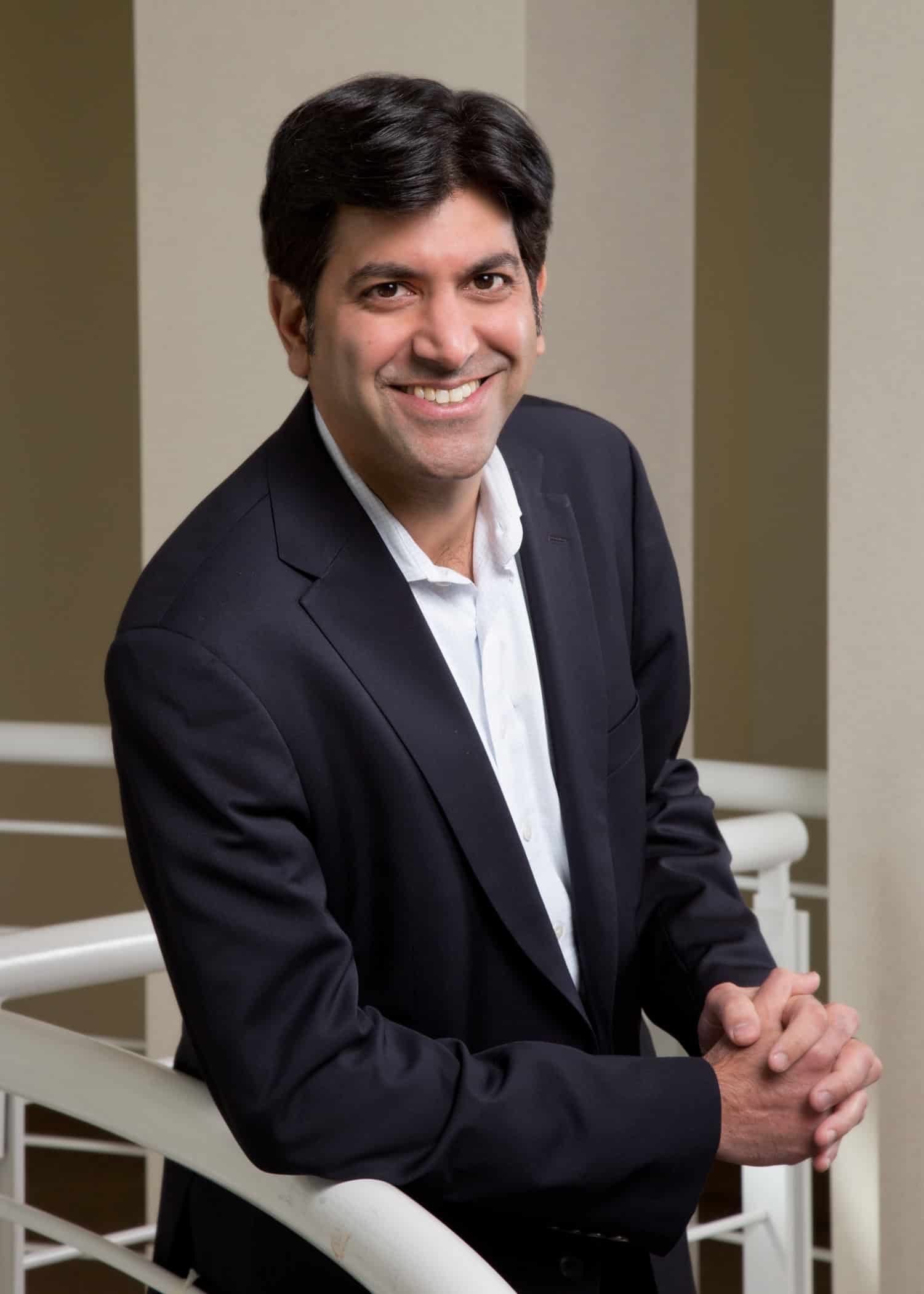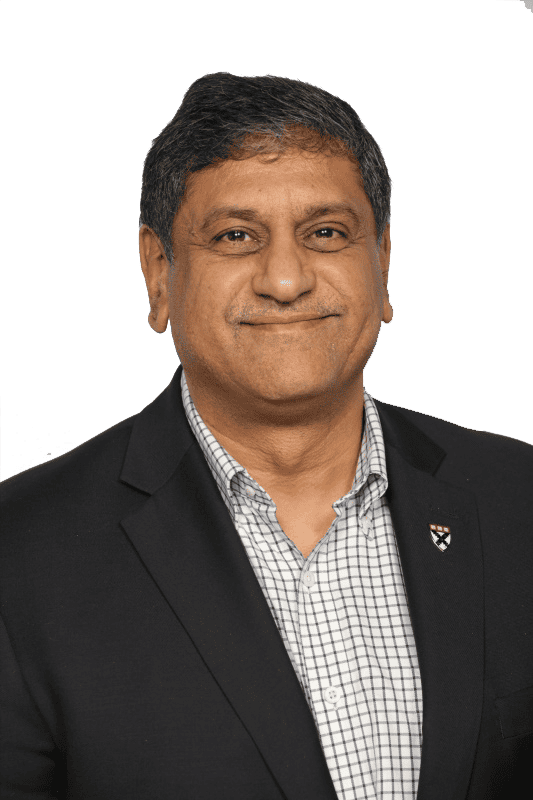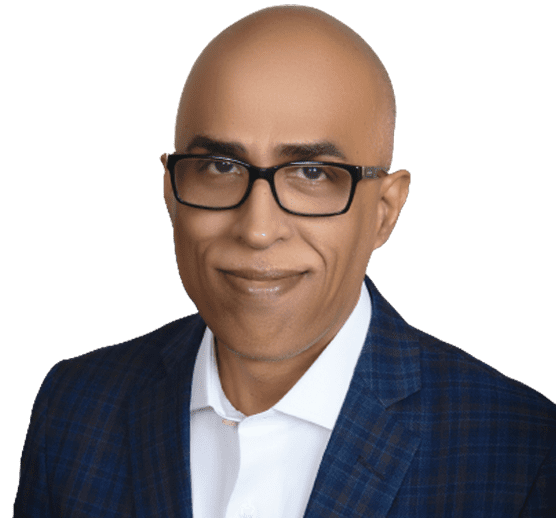Season 6: Episode #168
Podcast with Aneesh Chopra, Chief Strategy Officer, Arcadia

Share
In this episode, Aneesh Chopra, Chief Strategy Officer at Arcadia shares a bold vision for advancing healthcare equity through smarter data use, AI, and workflow innovation. He unpacks the journey from the early days of “meaningful use” to today’s AI-powered, value-based care landscape, highlighting how intelligent workflows can reach underserved populations and improve outcomes at scale.
Aneesh introduces the concept of a “healthcare information fiduciary,” a model where apps and platforms act solely in the patient’s best interest, free from institutional financial incentives. He discusses how this, combined with emerging AI capabilities and interoperability standards like CMS’s FHIR APIs, can empower consumers and scale high-impact care delivery.
With real-world success stories, from improved hospital ratings via conversational AI to national gains in ADT data coverage, this episode offers healthcare leaders a roadmap for driving innovation through public-private collaboration and patient-centered data strategy. Take a listen.
Show Notes |
||||
| 01:14 | What interests you in the healthcare industry segment to become the CIO of a hospital system? | |||
| 02:47 | How long have you been in the leadership position at UMC, where is it located, and what kind of population does it serve? | |||
| 03:35 | You have done a lot of work from technology perspective to support the business needs of the hospital. You've done over 200 applications and transformed the EMR system. Would you like to share with the audience the thought process that drove those changes and what were some of those changes? | |||
| 07:47 | What do you think about your digital transformation efforts? If you could describe a few of them which have had impact on the patient population. | |||
| 08:30 | Please describe in your own, you know, way that what is digital transformation for provider systems such as yours? Where do you see it going? Some of the challenges that you might have faced and how did it actually end up impacting patients? | |||
| 11:24 | How did you manage to change the mindset of the people? How did they manage to change themselves? To adapt to this new world where technology, especially with AI and GenAI and other new technologies which are coming our way, how do you change mindsets and change behaviors and change culture over there? | |||
| 13:00 | Would you like to provide one example of how the technologies which you were implementing, and you continue to be implementing in your hospital system are accessible and usable by a variety of users, including within the hospital and outside the hospital. | |||
| 16:28 | How do you innovate? Do you involve external parties? Do you have some kind of a, you know, innovation focus department? Or is it part and parcel of everybody's, you know, kind of like daily life? | |||
| 19:24 | What are your thoughts on new technologies, especially Gen AI? Have you been experimenting with any predictive analytics or large language models? What would be your advice or thoughts to any other healthcare leaders on how to go about this journey of exploration? | |||
| 22:15 | Standing here now and looking back, if you were able to go back and change one or two things, what would you like to do differently or have done differently? | |||
Video Podcast and Extracts
About Our Guest

Aneesh Chopra is the Chief Strategy Officer at Arcadia, a healthcare data platform company, where he advocates for interoperability and data-driven approaches that help providers, payers, and employers make smarter decisions to succeed in the shift to value-based care.
Chopra’s influence and leadership in technology includes extensive experience in the public sector. He served as the first U.S. Chief Technology Officer under the Obama Administration, where he spearheaded initiatives to modernize the nation’s healthcare system using electronic health records and health information exchanges. Chopra also served as Virginia’s Secretary of Technology under Governor Tim Kaine.
As a public servant, Aneesh fostered better public-private collaboration, a theme central to his 2014 book, “Innovative State: How New Technologies Can Transform Government.” Chopra’s significant contributions to the fields of technology and healthcare have cemented his reputation as a forward-thinking leader committed to leveraging technology for the public good.
Chopra serves on the U.S. Department of Commerce’s National AI Advisory Committee. He also serves on the boards of Trimedx, IntegraConnect, Virginia Center for Health Innovation, and the George Mason Innovation Advisory Council. He earned his master’s degree in public policy from Harvard Kennedy School and holds a bachelor’s degree in health policy from Johns Hopkins University.
Recent Episodes
Q. Hi Aneesh, welcome to The Big Unlock podcast. Very happy to have you here. I’ll do a quick intro and hand it back to you. I’m Rohit Mahajan, Managing Partner and CEO at BigRio and Damo Consulting. It’s great to know that you’re already familiar with Damo from your previous interactions with Paddy. We’re continuing to build on The Big Unlock podcast that he started. We’re now in Season 6, so welcome, and over to you.
Aneesh: Thank you, Rohit. I’ll begin by saying how grateful I am that you’ve picked up the baton. Paddy was a larger-than-life individual with had a lot of fans, myself included. I’m grateful you’ve continued this.
By way of background, I’m Aneesh Chopra, currently Chief Strategy Officer at Arcadia. We’re a market leader in putting healthcare data to work in value-based care for payers and providers, with a focus on helping individuals get the best possible care at every step of their journey.
Personally, I’m passionate about improving collaboration between the public and private sectors. I served in the Obama administration as the first U.S. Chief Technology Officer—a position that has thankfully remained bipartisan. I’m grateful for the opportunity to demonstrate what’s possible when we apply technology, data, and innovation to some of the country’s biggest challenges.
Q. That’s great to know. Could you tell us what first attracted you to healthcare?
Aneesh: Like many things, it was about timing. I was an undergraduate at Johns Hopkins in the early ’90s when President Bill Clinton brought national attention to healthcare reform. I had the opportunity to get involved—first as a student, and then as an intern for a Maryland initiative aligned with what Clinton was advocating, led by the university’s president.
That experience gave me an insider’s view of what it could look like to shape the future of healthcare. I’ve always believed that the best outcomes come from collaboration between the public and private sectors. Healthcare, in particular, is one of the defining challenges of our generation.
Back then, I was passionate about the role of internet technologies in democratizing healthcare. Today, I feel even more energized about the potential of AI to do the same—lowering costs and improving outcomes for everyone.
Q. Absolutely. That’s great to know, Aneesh. That brings me to the comment we were discussing before the podcast—about making use meaningful again. That’s a great catchphrase. Can you explain your thought process behind it and what it means to health systems, patients, and the larger population?
Aneesh: Thank you so much. By way of background, your audience likely remembers the term meaningful use—two words Congress wrote into the HITECH Act that led us on the journey of accelerating health IT adoption starting around 2010 when subsidies kicked in.
There’s always been a trade-off. What does meaningful use really mean? If you go to Best Buy and purchase software like TurboTax, you expect it to help you file taxes. But in healthcare, just installing software doesn’t guarantee better patient care. It may only serve the back office for billing or administration, without clinical benefit.
So, Congress allowed us to define what it means to be a meaningful user. That sparked debate. Should we focus on maximizing productivity in a fee-for-service model—like seeing twice as many patients a day—or should we focus on outcomes?
In the Obama transition team, our vision was to shift toward outcome-based models that reward better care. If we fix how people get paid, and incentivize longitudinal care, then technology becomes essential—not just during visits, but also between them. It can remind us of care gaps or flag things like unfilled prescriptions that signal problems with adherence.
So, meaningful use for organizations focused on long-term outcomes differs from those operating under fee-for-service. Our original intent was to prepare for the future—“where the puck is heading,” to quote Gretzky. But the industry found that difficult. We ended up with a half-measured IT program—subsidizing tech mostly built for fee-for-service, with only partial support for value-based care.
Now, the Trump administration’s CMS-ONC RFI is a chance to finish what we started in 2009-2010.
Q. The RFI you’re referring to is the CMS-ONC RFI, right? Can you explain what this RFI is for those who may not be familiar?
Aneesh: It’s a great opportunity for the private sector, nonprofits, providers, and plans to come together and say: here’s how we want healthcare IT to operate, how information should flow, how patients should access their data, and how clinicians and health plans can coordinate care to improve quality.
It’s an open invitation—across a dozen or more specific use cases—to help define the future we didn’t quite finish under meaningful use. It asks each stakeholder: What do you need? What do consumers want? How can physicians interact with data in real time? Historically, health plans were kept out of public health information networks—so how do we bring them in, and when?
It’s a short 30-day comment period. By the time this airs, it may be over—but that’s not the end. The executive branch will likely take action over the next year. I hope early adopters raise their hands and participate voluntarily before any formal regulation. That’s always been a hallmark of my work in government, and I’m grateful that the Trump administration carried that idea forward.
Q. That’s great to know, Aneesh. Thank you for sharing that. Based on your experience with the Obama administration or your current role, are there any success stories involving AI or interoperability that you’d like to share?
Aneesh: Yes. We’re grateful to support over 150 health systems, health plans, and ACO networks. We serve as their core data platform to build the longitudinal patient record. The great news is, once you’ve done that work, you can apply use cases on that foundation to help people be more successful.
There are three areas some of our customers have been advancing. The most exciting is conversational AI. One challenge in population management is taking responsibility for individuals who may not come into your clinic regularly. You need to reach out—remind them to get flu vaccines, check blood pressure, manage diabetes.
One academic medical center, mostly a fee-for-service organization, had underperformed on longitudinal measures. They were scoring one or two stars in the Medicare Advantage program, where four stars or more are needed to earn incentives. Their enablement partner—our customer—brought in a conversational AI workflow. It used the physician’s office phone line, declared the automated agent was calling on behalf of their doctor, and helped close hundreds, if not thousands, of care gaps over a 90-day sprint. As a result, they went from a one or two star rating to a four-star rating across several MA contracts—earning over $6 million in bonuses they previously hadn’t qualified for. That’s an example of the co-pilot concept in care management.
Another use case is evidence-based medicine. There’s debate around health plans denying care via prior authorizations. But if you frame it as evidence-based decision support, it becomes more of a nudge. One of our large academic centers, with a library of approved guidelines, has started piloting an AI co-pilot to monitor whether the patient in front of the doctor is a good candidate for a certain treatment. This reduces the cognitive load on physicians and integrates reminders at the point of care. It’s promising.
Finally, interoperability. CMS rolled out a daily FHIR API for health networks in the ACO REACH program. It moved claims data from being available 60 days after service—useful mainly for actuaries—to more real-time use for care managers. One of our advanced primary care clients, focused on high-need senior populations, saw their ADT (admission-discharge-transfer) data coverage improve from about 40% to nearly real-time. It may not be real-time for every patient, but it’s now fast enough to take meaningful clinical action for many more patients.
Q. That’s great to know. And now, thinking a little bit into the future—before the podcast, we were talking about the idea behind healthcare information fiduciary. Could you explain more about your thoughts on that and where this concept might go?
Aneesh: Yes. A little bit of history first. In the Obama administration, we proposed a fiduciary rule through the Department of Labor for self-insured employers managing 401(k) plans. At the time, there wasn’t much transparency. Many firms were charging 8–10% in fees, when it should have been less than 1%. That became a massive cost to employees’ retirement savings over time—estimated at nearly $3 trillion.
More importantly, brokers had incentives to sell products that paid them higher commissions, rather than products that met the individual’s risk profile or goals. So we proposed a fiduciary rule: if you trust me with your information in a complex domain like financial services, I must act in your best interest—not based on how I get paid.
That standard inspired me to carry the concept into healthcare. As we build health data hubs and consumers gain the right to control access to their information—or request and keep copies—we need to create a marketplace of apps that people can trust. These apps might use AI or other tools to help consumers not only aggregate records, but make better decisions at every step of the healthcare journey.
The key is that these apps must act in the patient’s best interest—not in the interest of a health plan pushing for lower-cost care, a hospital steering to more expensive services, or a pharma company promoting a branded drug when a generic might be better. So a healthcare information fiduciary is both a technical and ethical standard. It’s about creating a trusted ecosystem that organizes and activates personal health data responsibly, for the consumer’s benefit.
Q. Is this something already concrete and coming down the pike, or is it still just an idea?
Aneesh: It’s a bit of both. I’m one of the co-founders of the CARIN Alliance—a bipartisan effort with Governor Mike Leavitt, Dr. David Blumenthal, and the original National Coordinator, Dr. David Brailer. The four of us conceived a program now led by Ryan Howells to create a category of consumer-facing apps that follow a voluntary code of conduct.
This code addresses one part of being a fiduciary: transparency in how my data is used so I can trust the app. It goes beyond HIPAA, requiring disclosure of even de-identified data use—something hospitals and insurance companies don’t typically do. So the CARIN code of conduct is a step toward a full healthcare fiduciary model, but we’re not there yet.
Combine that with data-sharing rights and an upcoming AI code of conduct, and we may soon see apps that say: “Share your lab results, and I’ll give you next steps”—as we’ve already seen with GPT-like tools.
Q. That’s great. Before we wrap up, I’d love to hear more about your book The Innovative State. It’s been a while since it was published, what lessons remain relevant today?
Aneesh: I appreciate that. I was inspired by Sam Pitroda. Back in the ’80s, India had just 300,000 phone lines for 300 million people. Sam, after selling a business, returned to India with a symbolic salary and a bold goal: connect every remote village. He rejected both the public subsidy model and deregulation-only approach. Instead, he chose a third way: innovation.
He recruited hundreds of brilliant minds and built a digital-first telecom network. Within a decade, villages had STD booths and modern phone access.
That inspired my approach to public sector innovation—looking for that hidden “third way.” The heart of my book focuses on strategies that empower both government and private actors through handshakes and handoffs.
Innovation is often bipartisan. Washington can create the pathway, but it’s the private and nonprofit sectors that must execute. That includes opening government data, setting interoperability standards, introducing outcomes-based payments, and recruiting talent for “tours of duty” in government. These ideas are still highly relevant today.
Q. Absolutely. So. as we end the podcast, Aneesh, any parting thoughts or any final words for the audience that you would like to share?
Aneesh: Yes. In the spirit of the conversations Patty used to lead—this is our moment to raise our hands. If you see the future and want to help build it, now’s the time. The Trump administration’s RFI will kick off a series of actions this summer, fall, and maybe winter.
If you’re ready to be an early adopter, we want to hear from you. Reach out to me or connect with Washington. Let’s organize the early adopters, test what works, and then scale it across the sector.
Q. Amazing. Thank you, Aneesh. This was a great conversation. Hope to have you back again soon.
Aneesh: Thank you, Rohit. Appreciate you having me.
Subscribe to our podcast series at www.thebigunlock.com and write us at [email protected]
Disclaimer: This Q&A has been derived from the podcast transcript and has been edited for readability and clarity.
About the host
Paddy is the co-author of Healthcare Digital Transformation – How Consumerism, Technology and Pandemic are Accelerating the Future (Taylor & Francis, Aug 2020), along with Edward W. Marx. Paddy is also the author of the best-selling book The Big Unlock – Harnessing Data and Growing Digital Health Businesses in a Value-based Care Era (Archway Publishing, 2017). He is the host of the highly subscribed The Big Unlock podcast on digital transformation in healthcare featuring C-level executives from the healthcare and technology sectors. He is widely published and has a by-lined column in CIO Magazine and other respected industry publications.

Rohit Mahajan is an entrepreneur and a leader in the information technology and software industry. His focus lies in the field of artificial intelligence and digital transformation. He has also written a book on Quantum Care, A Deep Dive into AI for Health Delivery and Research that has been published and has been trending #1 in several categories on Amazon.
Rohit is skilled in business and IT strategy, M&A, Sales & Marketing and Global Delivery. He holds a bachelor’s degree in Electronics and Communications Engineering, is a Wharton School Fellow and a graduate from the Harvard Business School.
Rohit is the CEO of Damo, Managing Partner and CEO of BigRio, the President at Citadel Discovery, Advisor at CarTwin, Managing Partner at C2R Tech, and Founder at BetterLungs. He has previously also worked with IBM and Wipro. He completed his executive education programs in AI in Business and Healthcare from MIT Sloan, MIT CSAIL and Harvard School of Public Health. He has completed the Global Healthcare Leaders Program from Harvard Medical School.

Paddy was the co-author of Healthcare Digital Transformation – How Consumerism, Technology and Pandemic are Accelerating the Future (Taylor & Francis, Aug 2020), along with Edward W. Marx. Paddy was also the author of the best-selling book The Big Unlock – Harnessing Data and Growing Digital Health Businesses in a Value-based Care Era (Archway Publishing, 2017). He was the host of the highly subscribed The Big Unlock podcast on digital transformation in healthcare featuring C-level executives from the healthcare and technology sectors. He was widely published and had a by-lined column in CIO Magazine and other respected industry publications.
Never miss an episode
The only healthcare digital transformation podcast you need to subscribe to stay updated.
The Big Unlock Podcast is hosted by Damo Consulting Inc. For information, visit: www.damoconsulting.net Terms of Use | Privacy Policy
© 2025 The Big Unlock Podcast. All Rights Reserved.
Stay informed on the latest in digital health innovation and digital transformation